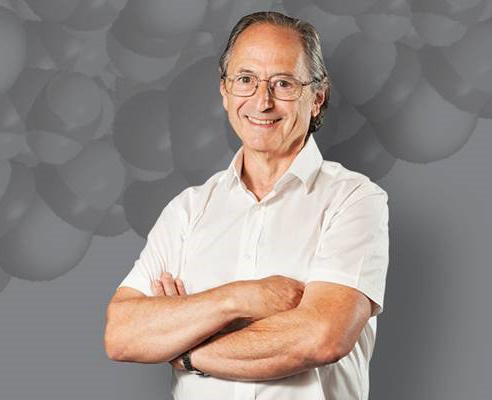Latest News Archive
Please select Category, Year, and then Month to display items
12 December 2024
|
Story Lacea Loader
|
Photo Supplied
 Dr Cias Tsotetsi, newly appointed Campus Vice-Principal: Academic and Research on the UFS Qwaqwa Campus.
Dr Cias Tsotetsi, newly appointed Campus Vice-Principal: Academic and Research on the UFS Qwaqwa Campus.
The University of the Free State (UFS) is pleased to announce the appointment of Dr Cias Tsotetsi as the Campus Vice-Principal: Academic and Research on the UFS Qwaqwa Campus as from 1 January 2025.
He is currently Senior Lecturer and Assistant Dean in the Faculty of Education on the UFS Qwaqwa Campus. He holds the following qualifications: BEd(Hons), Postgraduate Diploma in Education, Magister Educationis with specialisation in Policy Studies and Governance in Education, and PhD with specialisation in Philosophy and Policy Studies in Education – all from the UFS.
Dr Tsotetsi operated in the school environment for about 24 years before joining this university in 2010. Since then, he has taught several modules in the Faculty of Education and published several co-authored research articles as well as conference papers on community engagement, teacher development, and participatory action research methodologies, among others. He is also well versed in supervising postgraduate students.
He has received awards from both the university’s Scholarship of Teaching and Learning and the Research committees for his research and academic scholastic performance. He is a member of various committees, such as the Faculty of Education Academic Advisory Board and the Committee for Title Registration and has been participating in partnerships and in NRF-funded projects with peers from universities such as the University of KwaZulu-Natal, the University of Zululand, the Durban University of Technology, and the University of Venda.
“Dr Tsotetsi has a clear understanding of the current systems and operations on the Qwaqwa Campus and is positioned to drive its development. His experience and initiatives involving staff and postgraduate students are exceptional and inspiring. We look forward to Dr Tsotetsi’s valuable contribution to the UFS Qwaqwa Campus and the institution in his new position,” says Prof Prince Ngobeni, Campus Principal of the Qwaqwa Campus.
“I feel honoured to serve the university – and the Qwaqwa Campus in particular – and look forward to working with the campus and its management to develop the research portfolio,” says Dr Tsotetsi.
Nobel Laureate for Chemistry to visit UFS
2017-10-28

Prof Michael Levitt will be hosted by the UFS from
14 to 16 November 2017, where he will present the
first lecture in the Vice-Chancellor’s
Prestige Lecture Series.
Photo: Supplied
It is a great honour for the University of the Free State (UFS) to host Prof Michael Levitt, recipient of the 2013 Nobel Prize for Chemistry, which he shares with Marti Karplus and Arieh Warshel.
The trio received the Nobel Prize for their development of multiscale models used for complex chemical systems. “Being awarded the Nobel Prize is a unique and marvellous experience that no one can prepare for or could in any way know what to except,” said Prof Levitt during his 2013 Nobel Lecture at the Stanford University School of Medicine.
First lecture in Vice-Chancellor’s lecture series
The South African-born Nobel Laureate and Academy of Science of South Africa (ASSAf) Visiting Scholar will present the first lecture, Birth and Future of Multiscale Modelling of Macromolecules, in the Vice-Chancellors Prestige Lecture Series at the UFS on 14 November 2017. Prof Levitt is well-known for developing approaches which predict macromolecular structures.
He is one of many distinguished academics invited annually by ASSAf to deliver lectures as part of the Distinguished Visiting Scholars’ Programme, presented by ASSAf at universities across the country.
Pioneer in research of molecular dynamics
Prof Levitt is a biophysicist and a professor of Biology at Stanford University. He was one of the earliest researchers to conduct research on molecular dynamics stimulations of DNA and proteins. “My post-prize ambitions are twofold and probably inconsistent: (1) Work single-mindedly as I did in the mid-1970s on hard problems, and (2) Help today’s young scientists gain the recognition and independence which my generation enjoyed,” said Prof Levitt.